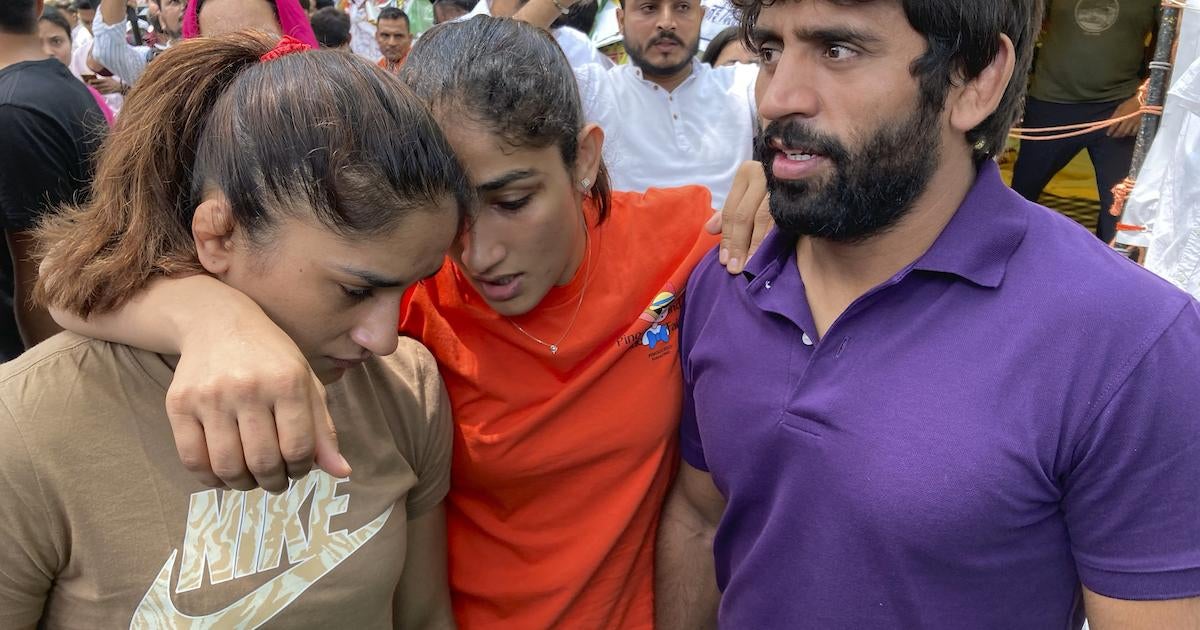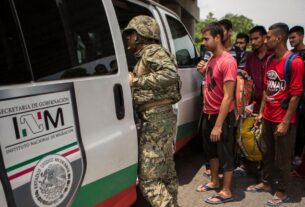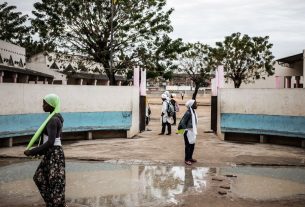(Nyon, Switzerland) – The International Olympic Committee (IOC) should immediately act to ensure reports of alleged sexual abuse of athletes by the president of the Wrestling Federation of India, Brij Bhushan Sharan Singh, are investigated fully, the Sport & Rights Alliance said today.
In a statement on May 30, 2023, the IOC called for an “unbiased, criminal investigation in line with local law,” but the Indian authorities have been reluctant to act, only initiating a police investigation after the complainants filed a petition in the Supreme Court. Six women and a child have filed complaints of sexual abuse with the police against Singh, a prominent member of parliament from the ruling Bharatiya Janata Party (BJP). Singh denies the allegations, and made derogatory remarks against the complainants.
“Indian officials might stoutly claim to defend the rights of women and girls, but when it has been put to test by the country’s foremost athletes, the authorities have resorted to victim blaming and shaming,” said Joanna Maranhão, network coordinator of the Sport & Rights Alliance. “It takes a lot of courage to break the silence and disclose a case of sexual abuse. We stand with the athletes and encourage the IOC to protect them, especially in this deeply power-imbalanced situation. Their wellbeing should be the top priority.”
The IOC should call on the Indian government to inform it of progress in the investigation, and to ensure that it is credible and timebound, the alliance said.
Indian authorities have forcibly tackled and detained athletes, including two Olympic wrestlers, when they attempted to march to the inauguration of a new parliament building by the prime minister that Singh was attending. They were later released. However, the authorities disbanded their month-long protest site on May 28.
India’s 2013 Sexual Harassment of Women at Workplace (Prevention, Prohibition and Redressal) Act, popularly known as the POSH Act, provides protection to all workers in the public and private sectors including health, sports, education, or government institutions. The 2012 Protection of Children from Sexual Offences Act (POCSO) forbids all forms of child sexual abuse. Singh, who is also accused under the POCSO Act, has said that the law is being “misused,” and vowed to “force the government to change it.”
At least 30 top Indian wrestlers, both men and women, first protested on January 18, saying that Singh, as well as some coaches, had been sexually abusing athletes. The protests were led by Olympic medal-winning wrestlers Bajrang Punia and Sakshi Malik, and two-time World Championship medalist Vinesh Phogat.
“I started thinking about my brother’s [9-year-old] daughter who has started wrestling,” Phogat told Al Jazeera at a sit-in in the Indian capital, New Delhi – explaining the “trigger point” that made her decide to speak out about the sexual abuse and harassment of wrestlers in India.
The wrestlers called off the protest after they were promised an independent inquiry and that Singh would step aside until the investigation was completed.
The committee has submitted its report, but it has not been made public. Government officials said that the committee had found that Wrestling Federation of India did not have an internal complaints committee mandated by the POSH Act, and failed to take further action against Singh.
The Indian Olympic Association (IOA) is neither independent nor a credible body to carry out an investigation, the Sport & Rights Alliance said. The IOA initially accused the protesting wrestlers of tarnishing India’s image, although its president, Olympic winner PT Usha, later met with the group and pledged support. The athletes resumed their protest after the authorities failed to act, demanding that Singh be arrested.
“In the face of a faltering Indian justice process, the IOC should publicly call on the BJP government to stop suppressing protesters to protect its party member, the Wrestling Federation of India president,” said Minky Worden, director of global initiatives at Human Rights Watch. “The IOC has made safeguarding athletes a priority and it should use its leverage and stand with athletes seeking to protect children from abuse in sport.”
The IOC should prioritize the safety and freedom of all athletes, as set out in its own IOC Strategic Framework on Human Rights. Given the inaction of political bodies in India over recent months, the IOC should press the Indian government to ensure that the authorities listen to Indian wrestlers and others affected though a transparent, independent, and impartial investigation into the sexual assault allegations.
The internal investigation should be led by a group of experts with a proven track record in safeguarding and trauma-informed investigations, and with the capacity to actively participate in all matters regarding the process, including to suggest corrections and file complaints, among other functions.
India has made no secret of its national ambitions to host a Summer Olympic Games for the first time. In October, India will host the 140th IOC session in Mumbai, which IOC member Nita Ambani has described as a “first step” toward the realization of a planned 2036 bid. In 2030, India will host the Summer Youth Olympics in Mumbai.
India’s sports minister, Anurag Thakur, says that “it is the right time” for India to host the Olympic Games. The Home Minister, Amit Shah, met with the protesters on June 3. The protesters have since returned to work but have vowed to continue their campaign. The government should now urgently act to address this case and the IOC should ensure that any bid from India is contingent on significant human rights improvements, not least for safety and freedom of the country’s own athletes.
“Indian wrestlers coming forward with allegations of sexual abuse, especially against such a powerful figure, is incredibly brave, difficult, and fraught with personal risk,” said Julie Ann Rivers-Cochran, executive director of The Army of Survivors, a survivor-founded organization formed after the Olympic system’s failure to deal with sexual abuse. “These athletes should be supported and protected, and their courageous demands for justice and safety should be met.”



